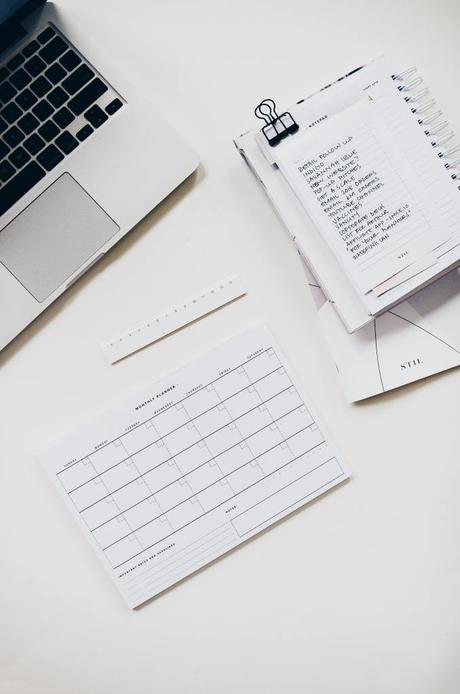
After weeks of working form home, people in our part of the country are about to head back to the office. The office will certainly look and feel different, and the way we behave and interact with each other will also be different. It will almost certainly be disorienting.
You may also be taking on tasks that you haven't done in a while, which can baffle you and slow you down. Luckily, there's an app for that. Actually, it's an ancient app that has been used by some of the smartest people on the planet and by some of the most ordinary people in your very home. The humble checklist is literally a lifesaving device, and it will make a difference for your daily work too.
The smartest and most skilled workers in the world don't rely on their memory or experience to get things done, even the tasks they perform routinely every day. Military pilots have relied on checklists for flight ever since the B-17 bomber was introduced during World War II. The new plane was so complex that a star aviator crashed the mighty aircraft during its demonstration flight. The U.S. Army Air Corps introduced mandatory pre-flight checklists and still uses them every day for every flight on every aircraft, 80 years later, as do all commercial airlines.
In 2008, the World Health Organization (WHO) and collaborators at the Harvard School of Public Health launched a Safe Surgery initiative and checklist. At the time it was introduced, about 234 million major operations took place annually around the world. Millions of patients suffered infections, injuries, and other preventable complications. About 1 million died.
A 2006 study explained part of the reason. According to a Harvard.edu article, the study by Peter Pronovost, an anesthesiologist and critical care physician at Johns Hopkins University Medical School. Pronovost devised medicine's first checklist: "an absurdly simple" tool for safely inserting a central line, or intravenous tubing, into a patient's chest. This lifeline for delivering medication became infected in as many as 4 percent of cases.
Pronovost discovered why. In a study of 100 Michigan hospitals, he found that, 30 percent of the time, surgical teams skipped one of these five essential steps: washing hands; cleaning the site; draping the patient; donning surgical hat, gloves, and gown; and applying a sterile dressing. But after 15 months of using Pronovost's simple checklist, the hospitals "cut their infection rate from 4 percent of cases to zero, saving 1,500 lives and nearly $200 million." The surgical checklist developed by WHO takes 2 minutes and has 19 items. Death rates from surgery fell by 47 percent after its introduction.
If brain surgeons and rocket scientists rely on checklist for things they do every day, why shouldn't you?
Checklists take the pressure of having to hold important tasks inside your head. Your every day life is complicated enough, with personal. professional, and family tasks, errands, appointments, and a hundred other things to remember. Checklists can make a difference for everyone in your life.
Kids first. A checklist for going to bed: brush teeth, wash face, lay out clothes for tomorrow... you get the idea. A well-designed checklist for mornings and evenings will help kids develop a routine that works, and save you hours of nagging and reminding.
Checklists work for maintenance, cleaning, and organizing, too. Daily, weekly, monthly, and seasonal tasks can be laid out in detailed checklists so reluctant helpers like teenagers or spouses can know when they're really done with the job and can go off to have fun.
Once you get started, checklists can be addictive. Try checklists for any complex task at home:
- Packing the camper for the weekend - and unpacking, cleaning, and restocking it when you return
- Getting the garden ready for winter and spring (or the pool, the car, the boat, or any other equipment that needs special care.)
- Big family meals like Thanksgiving - your checklist can cover a week's worth of preparation steps, saving you time, tears, and emergency trips to the store.
And then, of course, on to your professional life. If there are some complex tasks that you only do once in a while, a checklist can be a lifesaver (not to mention a great training tool if you're delegating or hiring someone to do the job.)
- Observe your own process on something
- Record your process (any way you want - you can video yourself, make an audio recording as you do it, or just write down the steps.)
- Try to do it again using the process you recorded
- Refine your process (Did you forget any important steps?)
- Teach the process to others - see if they can be successful using your checklist.
Checklists at home and at the office will improve your productivity and make it easier to manage your crew. And you'll finally be able to stop answering the 1,000 "Am I finished yet?" questions by saying "Check the checklist" rather than "don't make me come down there." See - checklists do save lives.

Candace's background includes Human Resources, recruiting, training and assessment. She spent several years with a national staffing company, serving employers on both coasts. Her writing on business, career and employment issues has appeared in the Florida Times Union, the Jacksonville Business Journal, the Atlanta Journal Constitution and 904 Magazine, as well as several national publications and websites. Candace is often quoted in the media on local labor market and employment issues. View all posts by candacemoody

